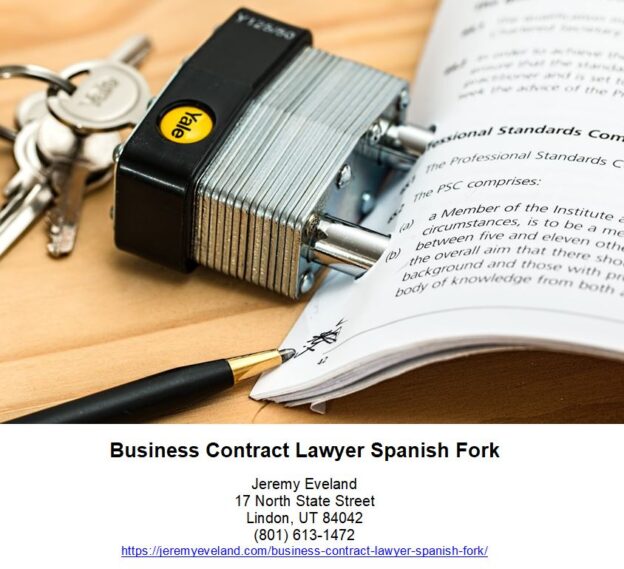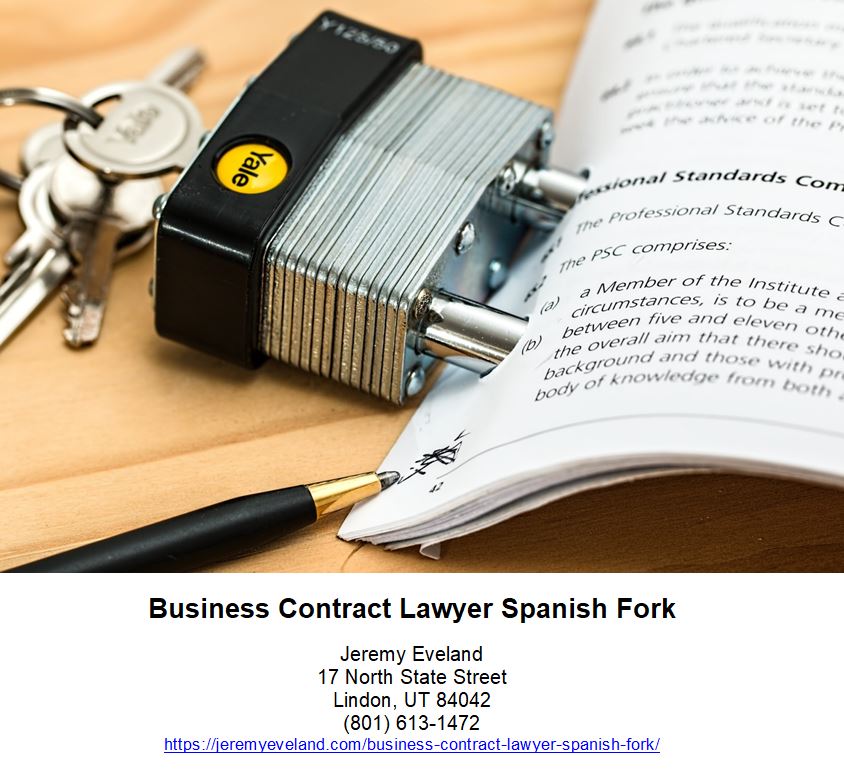-
Legal Topics
“Real Estate Law Firm: Your Trusted Guide to Navigating the Complexities of Real Estate Law”
Introduction
Welcome to our Real Estate Law Firm! We are a team of experienced attorneys who specialize in real estate law. Our firm has been providing legal services to clients for over 20 years. We are dedicated to providing our clients with the highest quality legal advice and representation. Our attorneys have extensive experience in all aspects of real estate law, including residential and commercial transactions, landlord-tenant law, title disputes, zoning and land use, and more. We strive to provide our clients with the best possible legal advice and representation in order to ensure their success. We look forward to working with you and helping you achieve your real estate goals.
The Benefits of Working with a Real Estate Law Firm
When it comes to real estate transactions, it is important to have the right legal representation. Working with a real estate law firm can provide a number of benefits that can help ensure a successful transaction.
First, a real estate law firm can provide experienced legal advice. Real estate transactions involve a number of complex legal issues, and having an experienced attorney on your side can help ensure that all of the necessary paperwork is completed correctly and that all of the legal requirements are met. An experienced attorney can also provide advice on how to best structure the transaction to ensure that all parties involved are protected.
Second, a real estate law firm can provide valuable insight into the local real estate market. A real estate law firm will have a deep understanding of the local market and can provide valuable advice on how to best structure the transaction to maximize the value of the property.
Third, a real estate law firm can provide assistance with the negotiation process. Negotiating a real estate transaction can be a complex process, and having an experienced attorney on your side can help ensure that the best possible deal is reached. An experienced attorney can also provide advice on how to best structure the transaction to ensure that all parties involved are protected.
Finally, a real estate law firm can provide assistance with the closing process. Closing a real estate transaction can be a complex process, and having an experienced attorney on your side can help ensure that all of the necessary paperwork is completed correctly and that all of the legal requirements are met.
Working with a real estate law firm can provide a number of benefits that can help ensure a successful transaction. An experienced attorney can provide valuable advice on how to best structure the transaction to maximize the value of the property, provide assistance with the negotiation process, and provide assistance with the closing process. By working with a real estate law firm, you can ensure that all of the necessary paperwork is completed correctly and that all of the legal requirements are met.
Understanding the Different Types of Real Estate Law
Real estate law is a complex and ever-evolving field of law that governs the ownership, use, and transfer of real property. It is important to understand the different types of real estate law in order to ensure that your rights and interests are protected.
The first type of real estate law is property law. This type of law governs the rights and obligations of owners and tenants of real property. It covers topics such as leases, mortgages, easements, zoning, and land use. Property law also covers the transfer of title to real property, including the sale and purchase of real estate.
The second type of real estate law is contract law. This type of law governs the formation and enforcement of contracts related to real estate transactions. It covers topics such as the negotiation of terms, the drafting of documents, and the enforcement of contracts.
The third type of real estate law is environmental law. This type of law governs the protection of the environment from the effects of real estate development. It covers topics such as air and water pollution, hazardous waste disposal, and land use.
The fourth type of real estate law is tax law. This type of law governs the taxation of real estate transactions. It covers topics such as property taxes, capital gains taxes, and transfer taxes.
Finally, the fifth type of real estate law is bankruptcy law. This type of law governs the filing of bankruptcy petitions and the discharge of debts related to real estate transactions. It covers topics such as foreclosure, repossession, and debt restructuring.
Real estate law is a complex and ever-evolving field of law. It is important to understand the different types of real estate law in order to ensure that your rights and interests are protected.
How to Choose the Right Real Estate Law Firm for Your Needs
When it comes to real estate law, it is important to choose the right real estate law firm for your needs. The right firm can help you navigate the complexities of real estate law and ensure that your interests are protected. Here are some tips to help you choose the right real estate law firm for your needs.
1. Research the Firm: Before you choose a real estate law firm, it is important to do your research. Look into the firm’s background, experience, and reputation. Read reviews and ask for referrals from other clients. This will help you get a better understanding of the firm’s capabilities and how they can help you.
2. Ask Questions: Once you have narrowed down your list of potential firms, it is important to ask questions. Ask about their experience in the area of real estate law, their fees, and their approach to handling cases. This will help you get a better understanding of the firm and how they can help you.
3. Consider Your Budget: When choosing a real estate law firm, it is important to consider your budget. Make sure that the firm you choose is within your budget and that they offer services that are within your price range.
4. Look for Specialization: When choosing a real estate law firm, it is important to look for firms that specialize in the area of real estate law. This will ensure that you are getting the best advice and representation possible.
5. Consider Location: When choosing a real estate law firm, it is important to consider the location of the firm. Make sure that the firm is located in an area that is convenient for you and that they are familiar with the local laws and regulations.
Quiet Title Action
A quiet title action is a legal action to establish a party’s title to real property and remove any claims or doubts about the ownership of the property. It is a type of lawsuit filed in court to resolve all claims to a piece of property so that the title is “quieted,” or cleared of any dispute. A quiet title action is a civil action that is often used to resolve a boundary dispute or to clear a cloud on title, such as an incorrect or outdated deed.
The purpose of a quiet title action is to establish ownership of real property, provide a record of clear title, and remove any claims or doubts about the ownership of the property. The plaintiff in a quiet title action is typically the person who holds legal title to the property. The defendant is typically someone who has some type of claim against the property, such as a lien holder or someone with an easement. The court will hear the case and determine which party has the stronger claim to the title of the property.
When a quiet title action is successful, the court will issue a quiet title order, which is a legal document that declares who holds the title to the property and removes any claims or doubts about the title. The order also serves to quiet any future disputes about the title of the property.
Quiet title actions are often used to resolve boundary disputes, clear title issues created by incorrect or outdated deeds, and remove liens from a property. They are also used to settle disputes between neighbors regarding the use of property. A quiet title action can be used to establish a party’s title to real property, provide a record of clear title, and remove any claims or doubts about the ownership of the property.
By following these tips, you can ensure that you choose the right real estate law firm for your needs. With the right firm, you can rest assured that your interests are protected and that you are getting the best advice and representation possible.
Common Real Estate Law Issues and How to Resolve Them
Real estate law is a complex and ever-evolving area of the law. It covers a wide range of topics, from the purchase and sale of property to landlord-tenant disputes. Common real estate law issues can arise in a variety of contexts, including residential and commercial transactions, landlord-tenant disputes, and zoning and land use regulations.
1. Title Disputes: Title disputes arise when two or more parties claim ownership of the same property. These disputes can be resolved through negotiation, mediation, or litigation. In some cases, title insurance may be used to protect against title disputes.
2. Breach of Contract: A breach of contract occurs when one party fails to fulfill their obligations under a contract. This can include failure to make payments, failure to perform repairs, or failure to provide services. Breach of contract disputes can be resolved through negotiation, mediation, or litigation.
3. Landlord-Tenant Disputes: Landlord-tenant disputes can arise when a tenant fails to pay rent, violates the terms of the lease, or causes damage to the property. These disputes can be resolved through negotiation, mediation, or litigation.
4. Zoning and Land Use Regulations: Zoning and land use regulations can limit the use of a property and can be a source of conflict between property owners and local governments. These disputes can be resolved through negotiation, mediation, or litigation.
5. Environmental Issues: Environmental issues can arise when a property is contaminated by hazardous materials or when a property is not in compliance with environmental regulations. These disputes can be resolved through negotiation, mediation, or litigation.
Real estate law issues can be complex and difficult to resolve. It is important to seek the advice of an experienced real estate attorney to ensure that your rights are protected and that any disputes are resolved in a timely and cost-effective manner.
The Impact of Recent Changes in Real Estate Law on Homeowners
Recent changes in real estate law have had a significant impact on homeowners. These changes have been implemented to protect homeowners from predatory lending practices, to ensure that they are aware of their rights and responsibilities when purchasing a home, and to provide them with more options when it comes to financing their purchase.
One of the most significant changes in real estate law is the introduction of the Consumer Financial Protection Bureau (CFPB). The CFPB was created to protect consumers from predatory lending practices, such as high-interest rates and hidden fees. The CFPB has implemented regulations that require lenders to provide clear and concise information about the terms of a loan, including the interest rate, fees, and other costs associated with the loan. This ensures that homeowners are aware of the full cost of their loan before they sign any documents.
Another important change in real estate law is the introduction of the Homeowner Bill of Rights. This law provides homeowners with additional protections when dealing with their mortgage lender. It requires lenders to provide clear and accurate information about the terms of a loan, and it prohibits lenders from engaging in certain practices, such as dual-tracking, which is when a lender pursues foreclosure while simultaneously negotiating a loan modification with the homeowner.
Finally, recent changes in real estate law have also made it easier for homeowners to access alternative financing options. These options include government-backed loans, such as FHA and VA loans, as well as private loans from banks and other lenders. These options provide homeowners with more flexibility when it comes to financing their purchase, allowing them to find the best loan for their needs.
Overall, recent changes in real estate law have had a positive impact on homeowners. These changes have provided homeowners with additional protections and more financing options, allowing them to make informed decisions when purchasing a home.
Q&A
1. What services does a real estate law firm provide?
A real estate law firm provides a variety of services related to the purchase, sale, and leasing of real estate. These services include drafting and reviewing contracts, negotiating deals, providing legal advice, and representing clients in court.
2. What qualifications do real estate lawyers need?
Real estate lawyers must have a law degree and be licensed to practice law in the state in which they are employed. In addition, many real estate lawyers have specialized training in real estate law, such as a Master of Laws (LLM) degree in Real Estate Law.
3. What is the difference between a real estate lawyer and a real estate agent?
A real estate lawyer is a licensed attorney who specializes in real estate law and provides legal advice and representation to clients. A real estate agent is a licensed professional who helps buyers and sellers negotiate the purchase or sale of a property.
4. What types of cases do real estate lawyers handle?
Real estate lawyers handle a variety of cases related to real estate, including contract disputes, landlord-tenant disputes, title disputes, boundary disputes, and zoning issues.
5. How much does it cost to hire a real estate lawyer?
The cost of hiring a real estate lawyer varies depending on the complexity of the case and the lawyer’s experience. Generally, real estate lawyers charge an hourly rate or a flat fee for their services.
Real Estate Law Firm Consultation
When you need help from a Real Estate Law Firm call Jeremy D. Eveland, MBA, JD (801) 613-1472 for a consultation.
Jeremy Eveland
17 North State Street
Lindon UT 84042
(801) 613-1472
Related Posts
Estate Planning Lawyer West Valley City Utah
Business Contract Lawyer Spanish Fork
Corporate Attorney Riverton Utah
Advantages of Hiring a Utah Personal Injury Lawyer
Estate Planning Lawyer Provo Utah
Business Lawyer West Valley City Utah
Business Succession Lawyer Eagle Mountain Utah



















